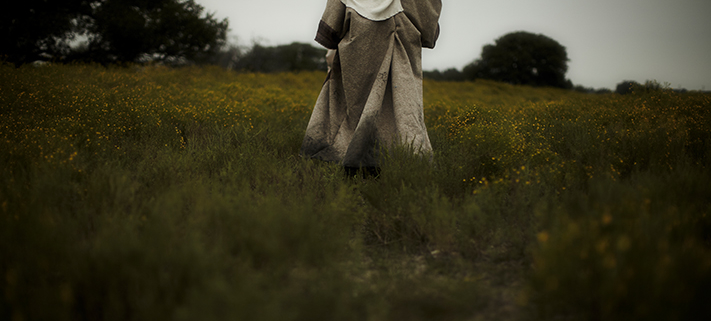Light for our path: Is the cross symbol now anti-Christian?
I see a lot of upside–down crosses these days in tattoos, posts on social media, and drawings on kids’ notebooks. I know its origin is biblical, but it doesn’t seem like people are using it that way. Is the symbol now anti-Christian?
James F. Pope
The meaning people inject into symbols and images can vary, and that is certainly the case with what you are seeing.
Christian cross
Centuries ago, Christians developed symbols to depict the lives and ministries of Jesus’ apostles. One of the symbols associated with the apostle Peter is an upside-down cross.
After the risen Lord instructed Peter to feed his lambs and sheep, Jesus said, “Very truly I tell you, when you were younger you dressed yourself and went where you wanted; but when you are old you will stretch out your hands, and someone else will dress you and lead you where you do not want to go” (John 21:18). While Jesus spoke of the future need for Peter to receive assistance in life, some people understood Jesus’ words about Peter “stretching out his hands” to mean that someday his hands would be stretched out on a cross.
Then, some traditions speak of Peter’s desire to be crucified in a manner that differed from Jesus’ crucifixion—presumably because he did not consider himself worthy to die as Jesus did.
For unsubstantiated reasons like these, an upside-down cross became a symbol for Peter.
Satanic symbol
Not surprisingly, Satan hates the cross and anything connected to Jesus Christ and his redeeming work. The fact that Satan’s followers blaspheme the cross of Christ by inverting it should not catch Christians by surprise either. The apostle Paul offers this reminder: “The message of the cross is foolishness to those who are perishing” (1 Corinthians 1:18). To Satan’s followers, it is not just the message of the cross that is foolishness, but it is also the Christian symbol of the cross that is foolishness. The devil’s disciples have expressed that attitude of foolishness by turning the cross upside-down.
The Church of Satan explains on its website that its members are free to use the upside-down cross as an indication of their rejection of Jesus Christ. They make it clear, however, that the inverted cross is not their official symbol; the Sigil of Baphomet is.
Trendy times
Finally, there is a third group of people who might use an upside-down cross in everyday life. Those are people who do not put any significance into using that symbol—it’s just the trendy thing. College students I talked to confirmed this prevalent attitude today.
Whether it is the clothing they wear, the tattoos they sport, or the genre of music to which they listen, young people might get caught up in the latest trends without intending to make any kind of statement. Those same students also reminded me that Christians might have a tattoo of a cross on their arms that is right side up to them but upside-down to others.
So, where does all this leave us? It means that when you see someone with an upside-down cross, you may not know what the intended message is until, and unless, you ask that person.
When it comes to Christians, there is no mistaking our use of the cross: “Lift high the cross; the love of Christ proclaim till all the world adore his sacred name” (Christian Worship 579).
Contributing editor James Pope, professor at Martin Luther College, New Ulm, Minnesota, is a member at St. John, New Ulm.
James Pope also answers questions online at wels.net/questions. Submit your questions there or to [email protected].
SUBMIT YOUR STORY
Do you have a manuscript, idea, or story from your own life you’d like to share for use in Forward in Christ or on wels.net? Use our online form to share it to our editorial office for consideration.
SUBSCRIBE TO FORWARD IN CHRIST
Get inspirational stories, spiritual help, and synod news from Forward in Christ every month. Print and digital subscriptions are available from Northwestern Publishing House.
Author: James F. Pope
Volume 106, Number 1
Issue: January 2019
Copyrighted by WELS Forward in Christ © 2021
Forward in Christ grants permission for any original article (not a reprint) to be printed for use in a WELS church, school, or organization, provided that it is distributed free and indicate Forward in Christ as the source. Images may not be reproduced except in the context of its article. Contact us









